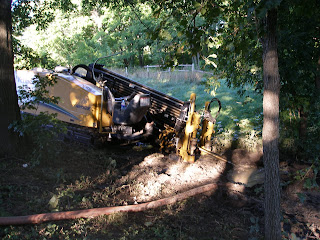Ethnomimicry in Permaculture
If worse comes to worse I have a feeling this land will revert to the original population that occupied it for 20,000 years making out short foray a minor occupation. For certain many of the customs and means to survival will resurface as the cold climate population transitions to an agrarian lifestyle. Our hybrid niche courtesy of cheap carbon fuels, will rescind to the natural niche we should be dealing with. Native Americans lived in a niche or succumbed to natural forces outside their niche. Eastward movement over countless generations of the first population built skills to survive and new means to prosper. Over centuries there bodies adapted to the rigors of outdoor life in regions hot, dry, wet, cold, and frozen.
Had not 95% of the indigenous population been killed by European diseases, our nation would be quite different and most of us would have been born in the land of our great great grand parents. Yet here we are at the cusp of a transition from cheap energy to expensive energy having flourished in a land we razed, drained, depleted and marginalized. A land our children's grand children will still have to use to feed themselves, without agrochemicals, without diesel fuel and without irrigation.
If "worse comes to worse", for the Republic, the only people that might be here after us will be the people who were here before us and those that accept their standard of living and learn their old and forgotten ways.
I hope for the
- Abenaki
- Akimel O'Odham (Pima)
- Alabama-Coushatta
- Aleut
- Apache
- Apalachee
- Arapaho
- Arikara
- Arkansas (Quapaw)
- Assiniboin
- Bannock
- Blackfoot
- Caddo
- Canarsee
- Catawba
- Cayuse
- Cherokee
- Cheyenne
- Chickasaw
- Chinook
- Chippewa (Ojibwa)
- Choctaw
- Coeur d'Alene
- Colville
- Comanche
- Cree
- Creek
- Crow
- Dakota (Sioux)
- Delaware
- Erie
- Gros Ventre
- Haida
- Hidatsa
- Hoopa
- Hopi
- Huron
- Inuit
- Illinois
- Iowa
- Iroquois Confederacy
- Kalispel
- Kansa (Kaw)
- Kickapoo
- Kiowa
- Klallam
- Klamath
- Kootenai
- Kwakiutl
- Lumbee
- Mahican
- Maidu
- Makah
- Malecite
- Mandan
- Manhattan
- Maricopa
- Massachusett
- Menominee
- Miami
- Micmac
- Mission Indians
- Modoc
- Mohave
- Mohawk
- Mohegan
- Montagnais and Naskapi
- Muskogee
- Narragansett
- Natchez
- Navajo
- Neutral Nation
- Nez Percé
- Nootka
- Ojibwa
- Okanogan
- Omaha
- Oneida
- Onondaga
- Osage
- Oto
- Ottawa
- Paiute
- Papago (Tohono O'Odham)
- Pawnee
- Pennacook
- Penobscot
- Pequot
- Pima (Akimel O'Odham)
- Pomo
- Ponca
- Potawatomi
- Powhatan Confederacy
- Pueblo
- Puyallup. See Salish
- Quapaw
- Quechan
- Sac and Fox
- Salish
- Santee
- Sarsi
- Sauk. See Sac and Fox
- Seminole
- Seneca
- Shawnee
- Shoshone
- Shuswap
- Sioux
- Spokan
- Stockbridge
- Teton
- Tillamook
- Tlingit
- Tohono O'Odham (Papago)
- Tsimshian
- Tuscarora
- Ute
- Wampanoag
- Wappinger
- Washo
- Wichita
- Winnebago
- Wyandot
- Yakima
- Yamasee
- Yokuts
- Yuma
- Yurok
will rise to the 25 million that were here before Columbus. I hope
they will accept and bare the burden and take the best systems our democracy
devised.
In Permaculture the Edge and Margin holds great energy and resources.
A society on the edge of "cilvilization" or maginalized by the
majority might hold the key to prosperity or at least survival in
extreme adversity.
Each of these tribes, bands and nations are a national treasure, they
should be honored and respected. Their culture understood and
appreciated.

Comments